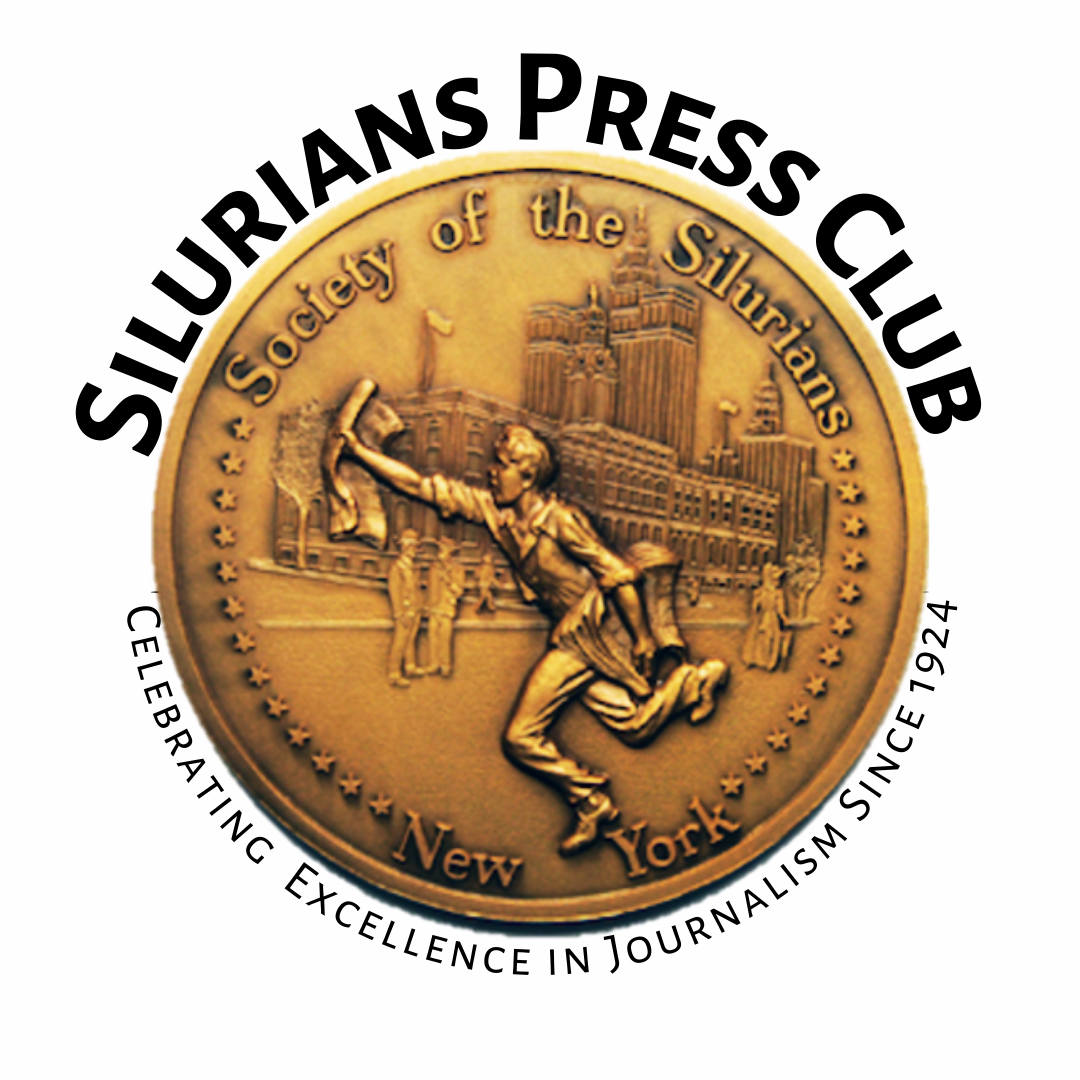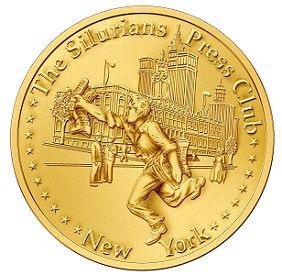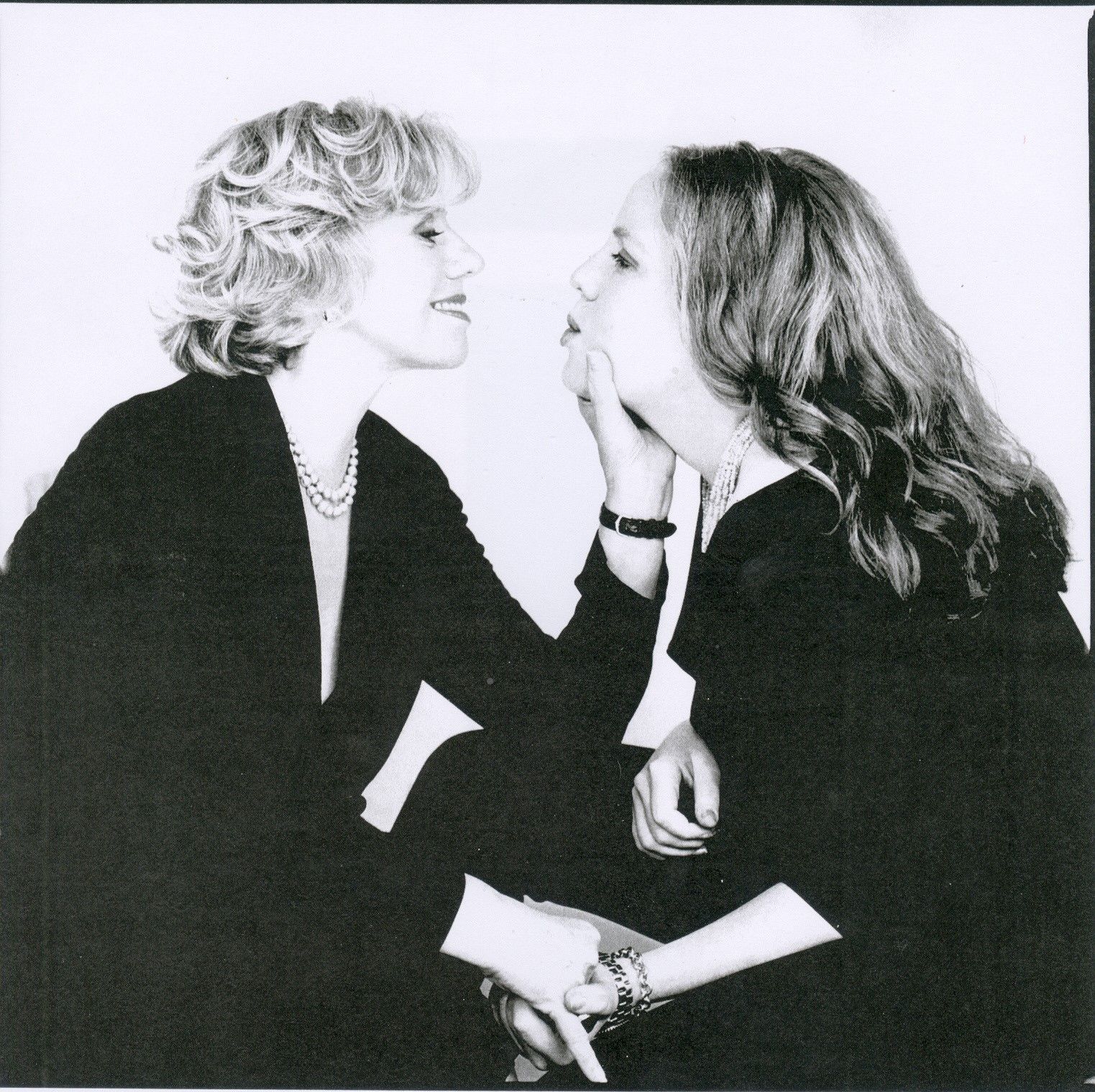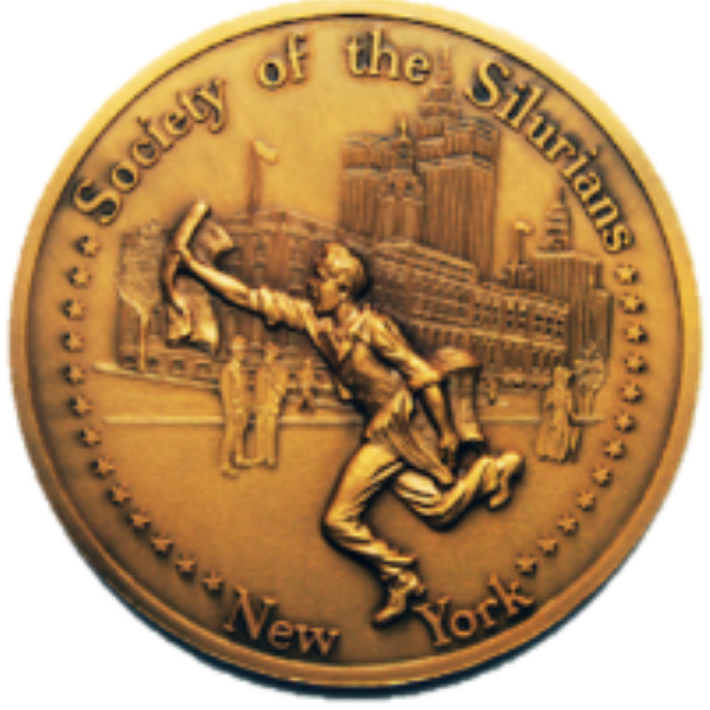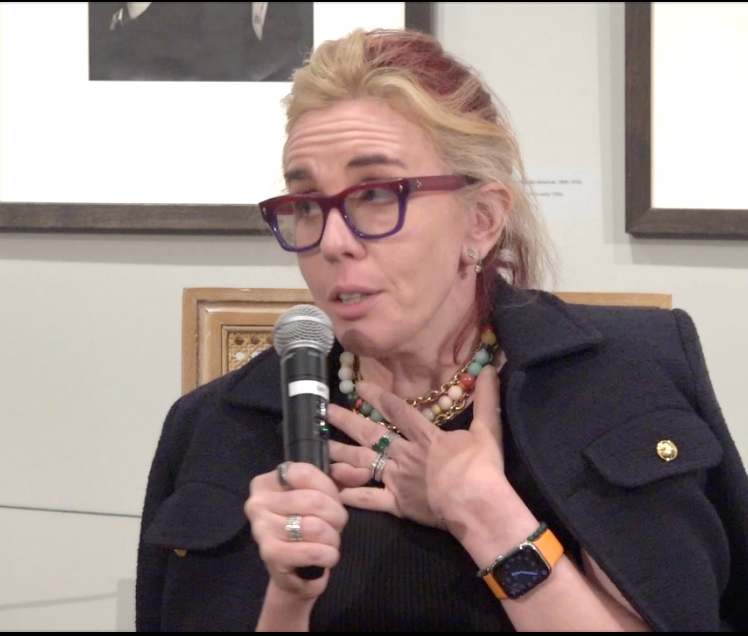
Molly Jong-Fast
Molly Jong Fast on Mothers, Memoirs, and Mayhem
By David A. Andelman
As the great columnist and Silurian Joyce Wadler observed, when your grandfather was Howard Fast who wrote Spartacus and went to jail for refusing to name names to the HUAC, your father is novelist Jonathan Fast, and your mother is Erica Jong, whose book Fear of Flying sold over 22 million copies, you’ve got to have no small amount of chutzpah, let alone talent, to write about them—and yourself.
That's just what’s Molly Jong-Fast did.
Then, to top it all off, she went before a room of her peers at the September 17 luncheon of the Silurians Press Club at the National Arts Club. Really, though, in her telling, the relationship with her mother very much came first. Then came the book.
As Joyce continued in her introduction, "Molly has written about being a fat lonely kid, about her addiction to drugs and alcohol, of going into rehab at 19, and being sober since, that's about 30 years. How to Lose Your Mother: A Daughter's Memoir, is a book about her relationship with her mother, Erica Jong, and Jong’s descent into dementia. It's generated praise for its honesty and wit. It sparked outrage. The Times said the book at times was like reading a score settling, but also a loving elegy. It also made it to The Times bestseller list in three weeks.
"So what was it like," Joyce wound up, "being the daughter of the writer who coined the expression for casual sex—the zipless fuck?"
"It's I think the reason why people have related to it—not because it's a story of being the daughter of Erica Jong, but because it's the story being a daughter. I had for a long time wanted to write a book. I come from a family of books. I understand how sacred it is to be able to write a book and what an ask it is of people to buy that book."
"The goal is to sort of describe a difficult mother-daughter relationship in a way if we can all relate to," Molly said. "I think this is really true that I don't exist, and the women of my generation do not exist without the sacrifices that my mother and the women of that generation made for us."
But much of all this goes deep into her own past and especially that of her remarkable family, as she put it, "Celebrity, is the closest thing we have to magic in modern American life. It is like a powerful elixir that makes people change their feelings about you and it gets you things, it changes the calculus. And I think it's very addictive. I saw this with my mom and I saw this with my grandfather. Noone has ever loved being famous the way Howard Fast loved being famous."
"My mom always wrote about me. Always, always, always endlessly and mostly pretty nice," Molly smiled thinly, "and she had always said, you know you will write about me. Writing about your children is not child abuse, which I thought was exactly right. It's not. It's not 100 percent kosher, but it's not abuse."
But there's even more involved. "You don't ever get to say uncle, right? Once you're locked in that kind of death spiral, there is no way out. My mom would be celebrating this book. Likely she would say, 'we don't agree on some of the facts, but did I mention it was on The New York Times bestseller list?'" That got a good laugh from Molly's audience of any number of writers, most lusting after a slot on that very list where Molly's books have succeeded her mother's works.
Then came the moment when her mother just began to come apart or disappear on her. "For me, my terrible year was 2023. I started to see my mom just disappear, and I thought I should write about this because I would run into friends who had parents the same age who were having these terrible situations.”
Her underlying theme, though, was more basic: "What is our purpose on this planet?” she rhetorically asked. I've been having this sort of slow rolling, middle-age crisis for the last decade."
As for her mother, Erica Jong, today. "She is where she is at this moment, not to get too Yogi Berra."
Molly returned to that theme as her coda:
"The whole point of her, the whole spirit of her was that you tell the uncomfortable truth, that makes you look terrible, too. We always said everything to each other. You cannot look at this relationship through normal lenses. There are no right answers. When you get to this point, just have to do the best you can."
Inevitably, of course, there were doubts. Every writer has those. As Molly put it, "For a minute, when I finished this book, I thought, oh my god, I've ruined my life. I had finally got out of being Erica Jong's daughter… And then I write this book. And I thought, this is so stupid. For a whole weekend, I thought this is a terrible idea. And then it hit The New York Times bestseller list. I am a genius, so I really did feel like I did a good job, and you know, I made a little money. When you get to this point you just have to do the best you can."
David A. Andelman is a past president of The Silurians, a former New York Times and CBS News correspondent, and creator of SubStack’s global Andelman Unleashed.
